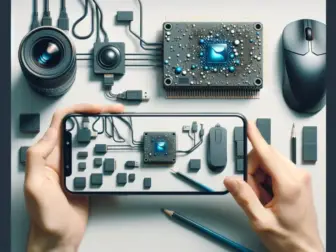Tag - Health Monitoring Devices
Revolutionizing Healthcare with Health Monitoring Devices
Health monitoring devices have become an integral part of modern healthcare, revolutionizing the way we track and manage our health. These devices, ranging from fitness trackers to smart scales, are designed to monitor various health metrics such as heart rate, blood pressure, sleep patterns, and physical activity. By providing real-time data and insights, these devices empower individuals to take control of their health and make informed decisions.
One of the key benefits of health monitoring devices is their ability to track health metrics continuously, allowing users to monitor changes over time and identify trends. For example, a fitness tracker can log daily steps taken, calories burned, and sleep quality, providing a comprehensive overview of one’s physical activity and wellness. This data can help individuals set and track fitness goals, make adjustments to their exercise routine, and improve overall health outcomes.
Moreover, health monitoring devices can also detect early warning signs of health issues and prompt users to seek medical attention. For instance, a smart blood pressure monitor can alert users to abnormal readings and recommend consulting a healthcare provider. This proactive approach to health monitoring can help prevent serious health complications and improve treatment outcomes.
Another advantage of health monitoring devices is their ability to facilitate remote monitoring and telehealth services. With the rise of telemedicine, patients can now connect with healthcare providers virtually and share real-time health data from their devices. This not only improves access to healthcare services, especially for individuals in remote or underserved areas, but also enables more personalized and efficient care delivery.
Additionally, health monitoring devices are playing a crucial role in chronic disease management. Patients with conditions such as diabetes, hypertension, or heart disease can use wearable devices to monitor their vital signs, track medication adherence, and receive personalized health recommendations. This continuous monitoring and feedback loop can help individuals better manage their conditions, prevent complications, and improve quality of life.
As the field of health technology continues to advance, we can expect to see even more innovative and sophisticated health monitoring devices in the future. From wearable biosensors and smart clothing to implantable sensors and AI-powered health platforms, the possibilities are endless. These advancements have the potential to transform healthcare delivery, improve patient outcomes, and reduce healthcare costs.
In conclusion, health monitoring devices are revolutionizing healthcare by empowering individuals to take a proactive approach to their health and well-being. By providing real-time data, personalized insights, and remote monitoring capabilities, these devices are enhancing access to care, improving chronic disease management, and transforming the patient experience. As technology continues to evolve, we can look forward to a future where health monitoring devices play an even greater role in promoting health and wellness for all.

